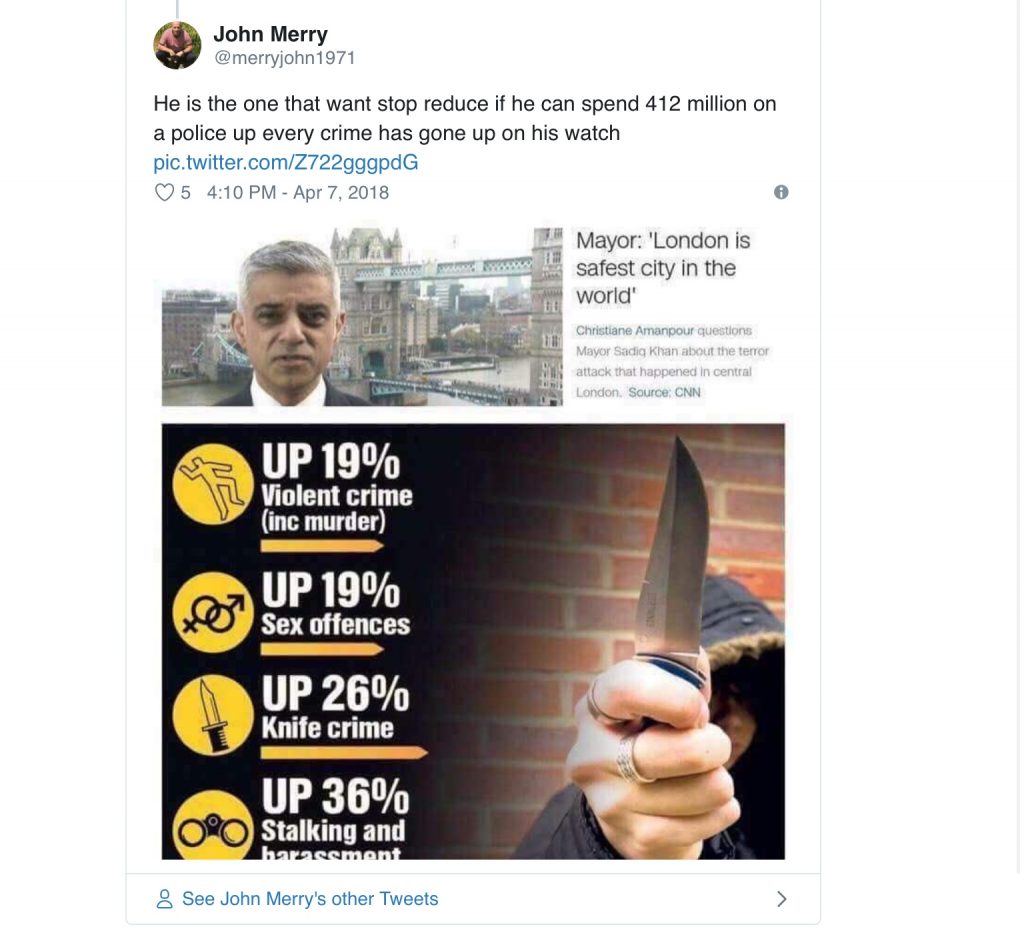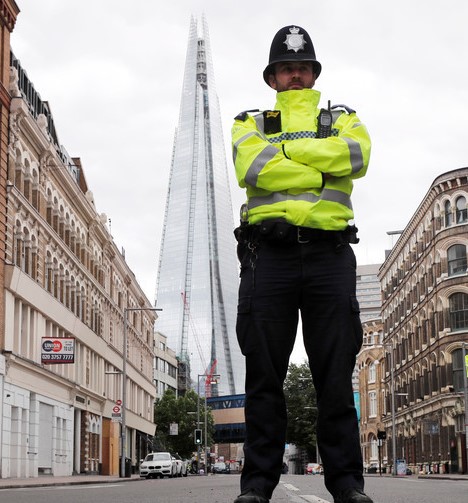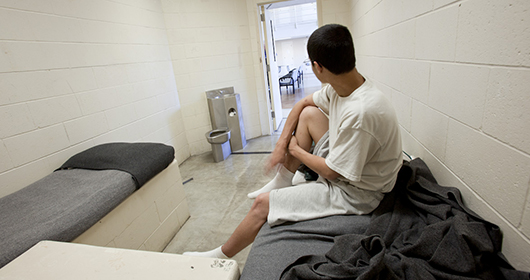New alternatives need to be found in light of disappointing measures to curb London’s knife crime epidemic.
When Raheem Kassam was interviewed by Sky News in early 2018 after pejoratively describing London as a “s***hole”, he was abruptly cut-off for simply using the same phrase the presenter, Gamal Fahnbulleh provokingly used numerous times when quoting Donald Trump’s view on some countries in Africa. It may be inappropriate to paint London with such colourful language on live television, but it is not far-fetched.
Anyone who decides to look at the crime statistics for the capital city and to those families who have had their lives torn apart, this would regrettably be the case. Sky’s avoidance of the topic is only one example of those we need to look to for answers. The very people who have a proclivity to shirk their responsibility when it comes to addressing London’s knife crime epidemic.
Mayor of London, Sadiq Khan, recently declined an invitation to take part in a debate covering knife crime explaining away his absence by claiming it was first and foremost contingent on a representative from the government also appearing. When however, the Minster for Policing, Nick Hurd accepted the invitation Khan still failed to attend. Ultimately the debate, took place without the Mayor or Minister.
When knife crime is discussed, we increasingly see families mourning the death of a loved one taken far “too soon” and whilst this is both extremely tragic and moving, it is also frustrating when year after year, young people between the ages of 10-25 are disproportionately affected by knife crime whether they be victims or perpetrators. Knife crime is reprehensible and whilst public outcry has a rightful place in the media, this alone has not served as a deterrent. Nor should we expect it to.

Combined with Sadiq Khan’s proclamation that knife crime will take a decade to fix when in the first place since his tenure, crime has increased in almost every category according to Metropolitan Police reports and with austerity reducing the number of police officers, we find ourselves with a plethora of issues but few solutions. Our solutions however, need to evolve beyond perceived panaceas such as harsher sentencing and stop and searches which pay no attention to the more pernicious effects of such measures.
What do the stats say?
A recent Gov.UK report suggests that black people are 8 times more likely to be stopped and search in a time when in 2018 stop and search has been at its lowest. The same report also states that only 17% of stop and searches led to arrest meaning that far more people are searched than are necessary, doing the opposite to reconcile divisions between the police, youths and ethnic minorities who already feel marginalised with the rest of society. The proliferation of knife crime also creates an environment where people consider carrying knives themselves for protection. This is only exacerbated by the decreasing police presence due to austerity.
Clearly, there exists numerous trade-offs and many moving parts: greater number of police officers may deter crime and make people feel safe, but at the cost of an increase in the number of stop and searches. This, comes at the price of social costs that as statistics have proven, i.e. racially motivated and can be seen as deeply intrusive.

Rolling back austerity is only the start as it’s a disservice to inhabitants of London that they don’t feel safe and take matters into their own hands to protect themselves. Solutions should endeavour to tackle the root causes of knife crime and not the symptoms. It will involve confronting the susceptibility of young males to fall victim to it. This would mean more effective engagement with the youth that unpacks their psyche with their fascination for gang culture or music culture which today seems intertwined.
If this is not analysed carefully, harsher sentences will not guarantee an elimination of repeat offences. Offenders are likely to return to the same breeding grounds of violence that led them to prison in the first place. That is, if the prison itself is assumed to not be a nucleus for inspiring greater violence germinated by resentment towards authority and the police who may be perceived as scapegoats for the lack of opportunity. The Telegraph for instance reports that first time offenders make up 72% of offences, a record low, having steadily fallen since September 2009.

Solutions going forward
A more holistic approach therefore needs be targeted, one similar to the model followed in Glasgow. Of course, there would be no guarantee of the same results, but it will be a good start. Improving community outreach and increasing work opportunities provides an alternative path away from the enticement of joining gangs or contributing to violence.
The recent nine month suspended sentence of Skengdo and AM for performing their song “Attempted at 1.0” is counterproductive. Just as stop and search is seen as a paternalistic tool, restricting freedom of expression and criminalising drill music will only perpetuate further distrust with the establishment when it is the only voice many alienated youths have. This is not to say that such provocative lyrics should be condoned, but greater attention needs to paid to the context of the subject matter if we are to reach any long-term solutions.
Currently we’re not asking the right questions. Let’s not be fixated at the what, but the why. We’re being betrayed by those in power not “stopping and searching” below the surface. Knife crime takes a second to commit but there are considerable social and psychological factors and significant amounts of time before a knife is wielded, that influences the crime. We need extensive participation in positive dialogue from our leaders and fresh ideas. Einstein once said insanity is doing the same thing over and over again and expecting different results. Hopefully in the future, we can see common sense prevail before London over the next 10 years becomes a “s***hole”.
Joshua Raj is a journalist for TCS scribe. A student at Loughborough University, he also plays various sports. Well he tries to. Having lived most of his life in South-East Asia, Joshua is interested in comparative politics and finance after being fascinated with how ‘governance’ has been applied by the rising economies in the region. Particularly, how they differ from the Western in which they seek to reconcile their own brand of rigid politics with fluid free-market economic principles.


